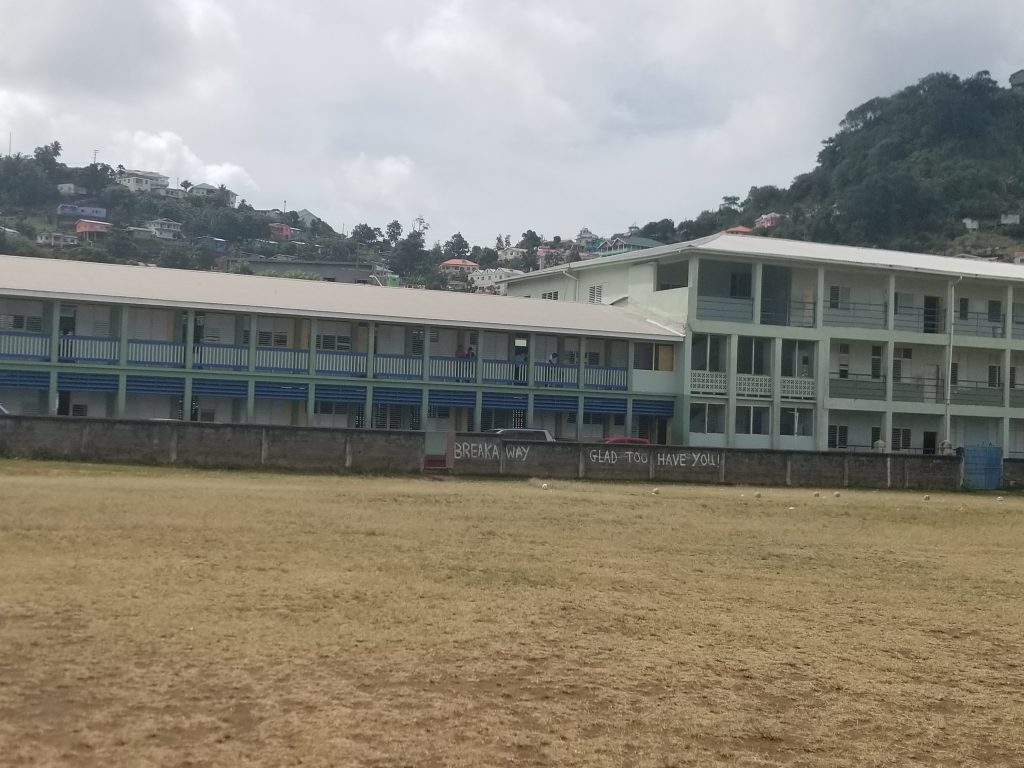Advertisements

The new academic school year has begun and the myriads of problems that have plagued the education system for the past eighteen years have remained. It would appear that the Unity Labour Party (ULP) regime does not have the capacity to solve the problems and implement creative innovations to adequately improve the teaching learning process in St. Vincent and the Grenadines.
At the beginning of every academic year, there is perennial problem of the delay to the reopening of some schools. While there has been an effort by the government to renovate some schools this year; the quality of the physical environment remains a concern. This environment significantly affects students’ achievements and teachers’ performance. It is still a daunting task and downright depressing to be teaching and learning in those classrooms where the physical conditions are poor and lack the stimulating teaching aids that are required.
Further, there are many undiagnosed learning difficulties which are not detected at an early stage. We have no system for identifying those students who may have a specific learning difficulty. Without targeted remedial education, some children may fall behind their peers in numeracy and literacy skills development. It is time for a unit with the responsibility for detecting and addressing learning difficulties be established in our quest to achieve positive outcomes in literacy and numeracy. A system of tracking and charting students’ progress in literacy and numeracy must be implemented to guide the remedial and improvement programme.
The high rate of repetition and dropouts is a major concern for us in the New Democratic Party (NDP). In comparison to the other countries in the Organization of Eastern Caribbean States (OECS), St. Vincent and the Grenadines not only has the highest repeaters at the primary and secondary levels but its numbers are far higher than that of the other islands of the OECS. Additionally, the repetition rate is significantly higher at the secondary level in St. Vincent and the Grenadines than in any other member country of the OECS. Despite the high investment in education, St. Vincent and the Grenadines has the highest dropout rate for both primary and secondary in the sub grouping.
Moreover, the ULP government has failed miserably to adequately develop an ITC programme and effectively implement the Caribbean Vocational Qualifications (CVQs) in our schools. It is well known that the general purpose of school is to transfer knowledge and prepare young people to participate in society. Society has changed significantly with the introduction of technology. Therefore, technology plays a major part in our lives. Just as how our society has changed over the years, so too should our education system. In today’s modern, global society that is interconnected as never before, we need young people that are technological savvy, skilled labourers and creative artist.
Technology is changing our world, changing the way we do business, the way we learn, the way we communicate, and even the way we entertain ourselves. Success in any field requires a command of technology. As such to meet the demand, information technology should be priority on the schools’ curriculum in St. Vincent and the Grenadines.
Also, there is a demand for more skilled labourers in crafts for example welding, woodworks, tailors and chefs etc. The culture of our country celebrates doctors, and lawyers but it looks down on skilled workers like farmers and fishermen. Farmers and fishermen play an important role in society because we need food in order to survive and the fishing industry is very lucrative. Skilled programme such as agriculture and woodwork are offered by some secondary schools not all. In order to meet the demand of society more emphasis should be in place on such programmes.
In Carnival, we see there is a need for more artisans. The music industry is very competitive and if a local artist makes it international, it benefits the country as a whole. Music, art and drama in our school help our children and communities in real and substantial ways. Students of the arts learn to think creatively and to solve problems by imagining various solutions, rejecting outdated rules and assumptions. Having a creative population will have an impact on the tourism industry which will help to bring in more money into the country.
The NDP will ensure that relevant remedial programmes are implemented in order to address the problems of literacy and numeracy before students enter secondary school. In order to implement these two key programmes we will begin by reviewing the past training of all our educators to see if we have sufficient qualified people to start this assessment programme and remedial education. If we do not have these skills in St. Vincent and the Grenadines then shall seek to develop, with the assistance of aid donors, a programme of training in assessment and in remedial education for teachers with the initial aim of having at least one teacher with each of these skills in every school. This cadre of trained teachers will then be employed to train others. And most importantly address the issue of Information Technology and fully implement the Caribbean Vocational Qualifications (CVQs).
The much-vaunted “education revolution” was simply an empty slogan applied to an OECS-wide; strategic approach to education, but the present government’s implementation has failed to remedy the underlying social factors that prevent so many of our children from performing at their best. Refurbished and new schools, more teachers, more scholarships while necessary, will not remove the underlying inequalities if we fail to understand that children do not all learn in the same way and that there are also factors in the families and social conditions of students that lead to some students, including some gifted students, falling behind their peers. The NDP aims to tackle these problems through continuous assessment of students and several forms of assistance where needs are identified.
Advertisements

Advertisements






